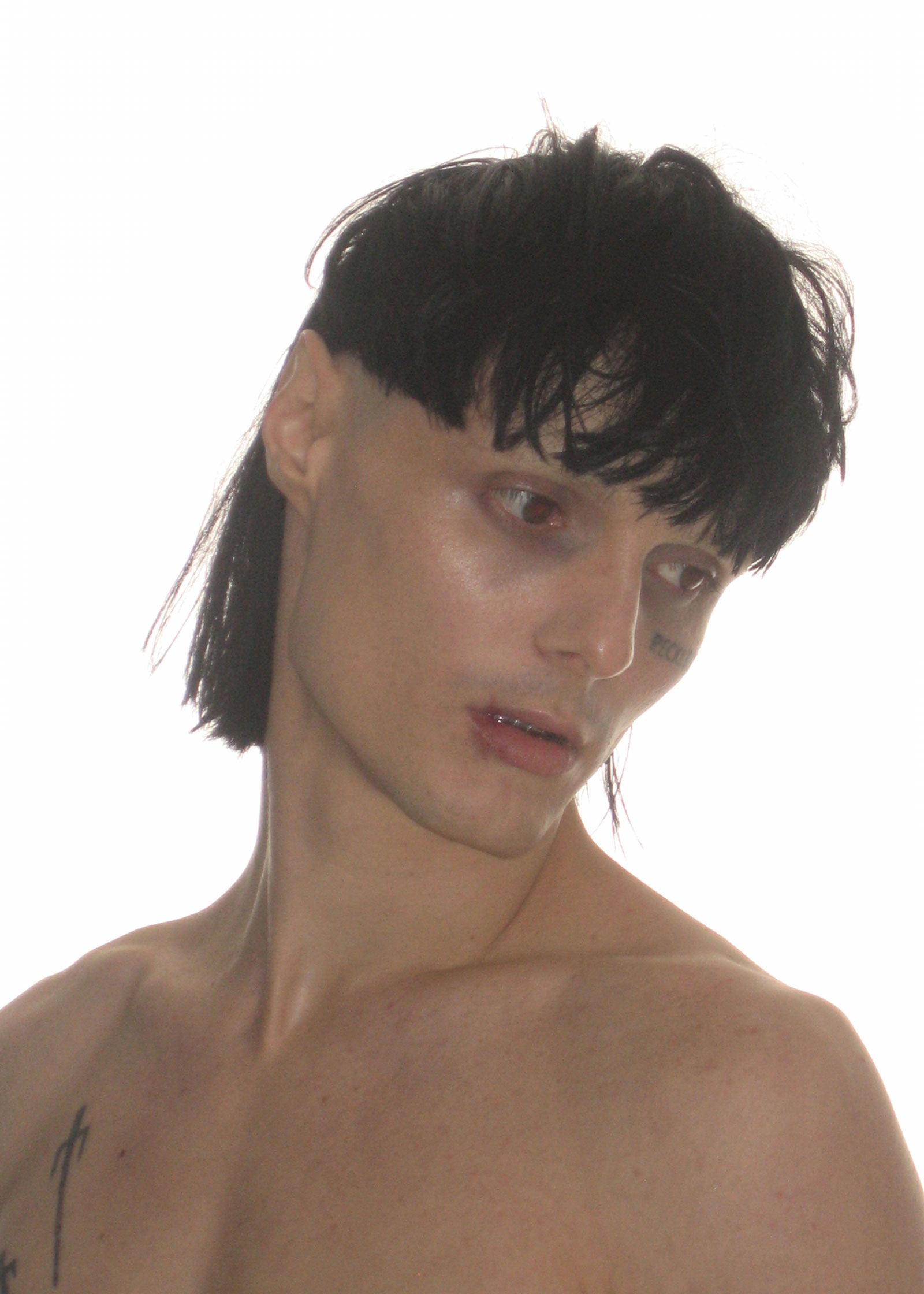on REVolution, REVenge, REVelation

Aime Simone’s lurid, fast-paced visuals are complemented by his lyrics on vengeance and avoidance, and simultaneously contrasted by a softness inherent to his vocals. His polyvalence comes as no surprise, given both his personal and artistic complexity: growing up as a Parisian enfant terrible, Simone’s process was a trial-and-error excavation into friendship, family, mental health, and the metropole’s cultural offerings. Yet through all the hardship, it proved to be a crescent path. His newest album REV is an enticing compendium of singular stories, not stretched too far from these formative realms. Its name carries multiple meanings: revving an engine, revolution, revenge, revelation, and maybe most notably rêve, the French word for dream. Woven into the album’s narrative tapestry, its songs are united by a fastening thread, unfolding in the ways of a modern myth.
Perfectly-timed with the release of his newest music video for GORE MODE, envisioned by Vitalii Akimov, we had a brief chat with the musician on where he currently positions himself. Something indisputable is him standing at a peak on this relentless trail, from where he’s ready to conquer the soundscape and all there may lie beyond it; undoubtedly, with a fashionable (peek the custom Coucou Bébé) and self-assured poise.
Congratulations on your newest release GORE MODE! Can you tell us about the inspirations behind it and the meaning?
The vision I had that inspired GORE MODE was this idea of the universe, or God, holding a gun to my head, threatening me that if I don’t do what I am supposed to do, my calling or destiny, I will be killed. It’s a kind of metaphor for the drive that I feel to create art. When I don’t do it I suffer, I’m punished as though someone is trying to force me back into my path. It’s also a song about revenge and going too far, getting a bit lost in the rage and violence of it. It’s a turning point in the story of REV, when I start to turn into a demon while on a quest for revenge and revolution.
What inspired the visuals?
The visuals are inspired by our environment and the world of REV. We live and work in Bagnolet, next to Paris, and this was the first time we immortalised it in our artistic work. The vibe of Bagnolet has something dark, trashy, but also stark and impressive. The character came alive here, it was personal and natural. The outfits were also a big part of it coming to life.
We love the Coucou Bébé moment in the video. Fashion has been a big part of your journey to where you are now, once being an exclusive model for Saint Laurent even – how do you relate to it as a whole?
I have had a complicated relationship with fashion. I think today I understand better what it means for me. I am not interested in the star system of it, the prestige of it. It can be fun but ultimately that’s not what I am looking for. What I love is the living expression and the doors it can open in you when you wear certain clothes. Your style can completely change you, including your personality and perception of the world. Through it you can become imaginative. Coucou Bébé is a great artist that is making fashion from that kind of lens.
What’s your favourite city and what’s your favourite thing about it?
I think my favourite city is Berlin. I have a personal history with it, living there was a very important era of my life. I healed there, I became myself there, my daughter was born there. It is a wild place, with a rebellious energy. I think it’s faded slowly since the 90s, but you can still feel it.
You grew up in Paris, which is in a lot of ways diagonally opposite to that. It can often appear overly polished, or some may even go as far as soulless, lol. Your music is gritty and raw, a lot like Berlin; was there ever a clash with your environment growing up?
Yeah definitely. I really hated Paris for most of my life. This city did a lot of wrong to me, and I don’t believe in a lot of the values that it pushes. But I’m working on reconciliation. I’m trying to change it also, and I’m not the only one. I think Paris is changing for the better.
You have admittedly experienced a lot of mental health struggles in the past decade, but you mentioned that it’s considerably different (and better) now – how does this part of your past influence the music you put out now?
What I’ve been through is in everything I do. I try to give you my experiences, to share what I’ve learned, to give you the strength I’ve found. I can transfer that through music, and when it helps people going through similar things that I went through, that’s my calling fulfilled.
Images by Leanda Heler
Words by Luna Sferdianu and Pykel van Latum
Notifications